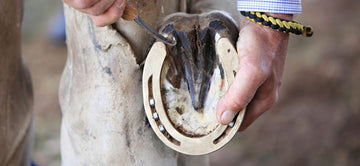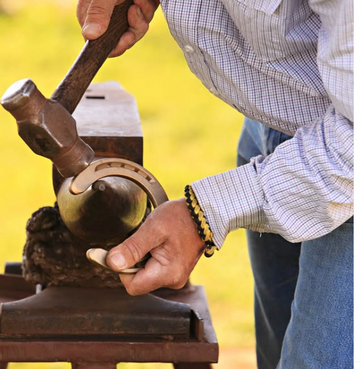Introduction to Dog Care
Creating a happy, healthy home environment is one of the most important responsibilities of being a dog parent. Dogs thrive on structure, comfort, and consistent care—and even when you’re away, they still need that same attention. That’s where dog sitters and pet sitting services come in.
Whether you need help for a day or an extended vacation, a trusted sitter can maintain your pup’s routine and provide companionship. With the right support, you can ensure your furry friend receives top-notch care, including feeding, walks, playtime, and emotional support.
For pet parents juggling busy schedules, professional services like dog walking, boarding, or overnight house sitting offer peace of mind and dependable care for your dog. These services cater to both dogs and cats, ensuring that all pets receive personalized and attentive care.

Understanding Your Dog’s Needs
Every dog has a unique personality, shaped by factors like age, breed, past experiences, and health. Understanding these differences is key to ensuring proper care. A senior dog may need gentler exercise and more frequent potty breaks, while a high-energy puppy may need structured play, socialization, and positive reinforcement.
Pet sitters who specialize in personalized care can help meet these individual needs while you’re away. They can adapt feeding routines, follow specific medication schedules, and even support training regimens.
Please inform your sitter about how many pets you have to ensure they can plan accordingly. The more your sitter knows about your pet's quirks, habits, and preferences, the more successful the care will be.
Breed-specific considerations also matter—some dogs are more prone to anxiety, some require more grooming, and others have strict dietary needs. A knowledgeable dog sitter will tailor their care to match your pup’s physical, emotional, and behavioral requirements.
Creating a Safe Environment
Home is where your dog feels most secure—but safety doesn’t happen by accident. Creating a safe space means removing hazards like toxic plants, small choking hazards, and sharp objects. Secure food storage, closed trash bins, and inaccessible electrical cords help prevent accidents.
If you’re hiring a house sitter, make sure they’re familiar with your home’s layout, including any rooms that are off-limits or spaces where your dog might retreat for quiet time. Leave instructions for how to access essentials like leashes, food, treats, grooming tools, and emergency contacts.
Many sitters now offer doggy day care and overnight services directly in your home or theirs. With video updates and consistent routines, these services ensure your pup gets the comfort of home without disruption. Ensuring safety during the night is crucial for pets staying overnight, as it provides peace of mind and continuous care.

Exercise and Physical Activity
Exercise is non-negotiable when it comes to your dog’s physical and mental health. Regular walks, play sessions, and even mental stimulation help prevent boredom and destructive behavior.
Depending on your dog’s energy level, they may need several brisk walks per day, time to run off-leash in a fenced yard, or indoor games like hide-and-seek or puzzle toys. We've got your tail covered with comprehensive care that ensures your pet stays happy and healthy.
Hiring a dog walker or a pet sitter with experience in active play can be a lifesaver—especially if your dog is a high-energy breed like a Border Collie or Jack Russell Terrier. Even older dogs benefit from light movement to maintain joint health and mobility.
Communicate your dog’s favorite activities and energy levels to your sitter. This allows them to create a balanced schedule that includes both rest and activity, helping to maintain your dog’s overall happiness and reduce anxiety.
Nutrition and Hydration
Consistent nutrition is the cornerstone of good health. Whether your dog is on kibble, a raw diet, or prescription food, it’s critical to follow feeding instructions closely. Pet sitters can help by sticking to your regular meal times and ensuring portion sizes are correct.
Hydration is equally important. Make sure your sitter knows where to find water bowls and how often they should be cleaned and refilled. Dogs may drink more during hot weather or after play, so sitters should monitor intake to ensure your pet is staying hydrated.
If your dog has allergies or specific dietary needs, make sure the sitter has a written guide and any emergency contact info for your vet. That way, they can respond quickly to any unusual symptoms like vomiting or loss of appetite.
Health and Hygiene
Keeping your dog clean and healthy is just as important as walks and play. This includes brushing their coat to remove dirt and debris, trimming nails to avoid pain or injury, and cleaning ears to prevent infections. A pet sitter trained in basic grooming can provide these services in your absence or remind you to schedule professional grooming visits. Using the right products when bathing makes a big difference, too. Always ensure that a groomer uses a dog-specific shampoo when bathing your pup.
If your dog requires medications or treatments—whether for chronic conditions or temporary issues like allergies—make sure your sitter knows the dosage, timing, and any side effects to watch for. Provide instructions in writing and show them how to administer pills or apply topical treatments if needed.
Daily check-ins can also help monitor for issues like limping, itching, or digestive troubles. Monitoring a dog's activities, including whether they have had a poop, is crucial for their well-being. A trained sitter will recognize early signs of illness and contact you or your vet promptly.

Socialization and Emotional Support
Dogs are social animals that crave interaction and affection. Being left alone too long can lead to loneliness, anxiety, and even destructive behaviors. That’s why companionship, even for a few hours a day, is so valuable.
Whether it’s through doggy day care or a home visit, pet sitters can provide the emotional support your dog needs. They’ll play with your pup, offer belly rubs, talk to them, and even sit beside them during thunder or fireworks. Some sitters are also trained to recognize signs of stress or anxiety and can use calming techniques like scent therapy, soft music, or quiet time in a favorite space. Additionally, many sitters provide photo updates to keep pet owners informed and reassured about their pet's well-being.
For puppies or recently adopted dogs, structured socialization with a sitter or through walks can help build confidence and reduce fear-based behavior.
Mental Stimulation
Keeping your dog’s mind active is just as important as physical exercise. Mental stimulation helps prevent boredom, reduces stress, and promotes overall well-being. Good pet sitters prioritize engaging activities that challenge your dog’s brain and keep them entertained.
Quality dog walking services and doggy day care programs are designed to provide both physical exercise and mental enrichment. Interactive playtime, puzzle toys, and scent games are just a few of the activities pet sitters use to keep your pet’s mind sharp.
Tips for Working Pet Parents
Even if you’re not traveling, daily responsibilities like long work hours or unpredictable schedules can make it hard to provide all the attention your dog deserves. In-home pet care can bridge the gap, and many services are available even on weekends to assist clients.
Consider scheduling mid-day walks, feeding visits, or evening play sessions. This helps break up your dog’s day, gives them a bathroom break, and provides essential stimulation. Many dog parents use regular pet sitting as a supplement to their care routine—even when they’re in town.
Hiring a sitter or walker regularly also builds trust between your dog and the caregiver, making it easier during longer separations in the future.
Emergency Planning
Always prepare your sitter for emergencies. Leave a folder with contact information for your veterinarian, an emergency animal hospital, and a backup caregiver. Include instructions for how to handle common scenarios like vomiting, accidents, or lost pet situations.
Proper emergency planning can make life easier for pet owners by ensuring that all potential issues are addressed in advance.
Keep medications and leashes in a clearly marked area, and let your sitter know your dog’s microchip number or license info if available. If your sitter will be driving with your pet, ensure they have a safe travel crate or seatbelt harness.
Frequently Asked Questions
How much should you pay a house dog sitter per day?
Rates vary by location and experience, but most sitters charge between $30–$75 per day. Overnight stays typically cost more. Always factor in the level of care and any special needs your dog may have.
How to care for a dog in the home?
Provide regular meals, fresh water, daily walks, playtime, grooming, and emotional support. Create a routine your dog can rely on and keep their environment clean and safe.
What's the 90/10 rule for dogs?
This rule suggests 90% of your dog’s daily calories should come from balanced dog food, and only 10% from treats. It helps maintain a healthy weight and nutrition balance.
Can I pay someone to check in on my dog?
Yes! Many professional pet sitters and dog walkers offer quick drop-in visits for feeding, potty breaks, or medication administration. These are a great option for short absences or supplemental care.
Sign up for updates to receive exclusive offers and news related to pet care services.
Conclusion
Caring for your dog at home is a rewarding part of pet ownership—but it doesn’t mean doing it all alone. Whether you need help for a weekend getaway or everyday support while working, in-home dog care services provide the companionship, structure, and safety your dog needs to thrive.
With a comprehensive service, you can rest assured that your pet's needs are fully met and their tail is covered.
By understanding your pup’s unique needs and working with trusted professionals, you can create a happy and healthy home environment that supports your dog’s physical and emotional well-being—every single day.










